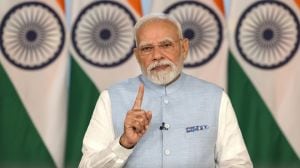Plan to import wheat fails to cool down prices
The government’s decision to import half a million tonne of wheat to tide over acute shortage of supply in the southern parts of India ...

The government’s decision to import half a million tonne of wheat to tide over acute shortage of supply in the southern parts of India has failed to cool down prices in the commodity market. Till recently, the government had refused to accept the fact that rise in wheat prices was due to shortage in supply. Now, the move to import wheat, especially when the next rabi crop is due for harvesting, has raised many eyebrows.
The government has already estimated a wheat output of 74-75 million tonnes during the current Rabi season (July 2005-June 2006). The total area under wheat cultivation was up at 242.96 lakh hectares against 240.88 lakh hectares during the same period last year.
It will take over three months for the imported wheat to reach India by which time the new wheat harvest would reach markets and keep the prices artificially low.
The government is expected to procure 160 lakh tonnes of wheat during the financial 2007, some 13 lakh tonnes higher than the procurement last year. Additionally, the government has decided to release 1.5 lakh tonnes of wheat in the open market to control the prices.
Demystifying government decision to import wheat, Sushil Sinha, regional head, Karvy Commodities says, ‘‘The difference in prices between the southern and northern states were so high that some of the traders were purchasing wheat from north and pushing it in the southern states. They were making a killing even after adding the transportation charges. The government probably didn’t want the traders to exploit the situation’’.
The wholesale price of wheat in Delhi is Rs 966-978 per quintal, similarly at Hapur it was quoted at Rs 1012.50. In contrast, in southern states like Kerala, Karnataka and Tamil Nadu where wheat is not a staple food, prices were above Rs 1,200-1,300 per quintal.
Incidentally, the wheat imports will be done at the southern ports of Chennai, Kakinada, Tuticorin and Visakhapatnam and will be sold at a concessional rate in the open market to ease off the pressure. At an average price of $150 per tonne, the duty-free wheat import to be executed by State Trading Corporation of India (STC) would cost the government around Rs 38,000 crore. The government levies a 70 per cent duty on wheat imports, making it literally unviable for private traders to import the grain.
Wheat imports of this magnitude were last made by the government in 1998-99, when 1.5 million tonnes were purchased. Between 1996 and 1999, 46 lakh tonnes were imported. India imports wheat mainly from Canada, Australia and Argentina.
World trade in wheat is expected to rise by 2 million tonnes despite a fall in imports by China and Pakistan in the current year 2005-06 (July/June). However, higher anticipated imports by countries such as India, Iraq and Korea will more than offset the loss in global trade.
On the NCDEX, the February 20 contract for a quintal of standard wheat jumped Rs 21 on Friday to Rs 868 from Rs 847. The contract even touched a high of Rs 928 on January 23 when the wheat shortage was more pronounced.
Photos





- 01
- 02
- 03
- 04
- 05

























